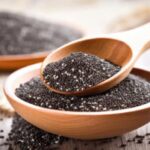Sweet potatoes are a versatile and nutritious food, offering a plethora of health benefits. They are a popular alternative to white rice in main meals and can support weight loss.
Health Benefits of Sweet Potatoes
Sweet potatoes are packed with vitamins and minerals. A 200-gram serving of roasted sweet potatoes with skin provides 180 calories, 4 grams of protein, 6.6 grams of fiber, 0.3 grams of fat, 769% of the daily recommended vitamin A intake, and 65% of the daily recommended vitamin C intake.
Sweet potatoes come in various varieties, with purple and orange ones being rich in antioxidants that combat free radical damage to the body’s cells.
Sweet potatoes are excellent for digestive health, providing ample fiber and antioxidants that benefit the gut. A diet with 20-33 grams of fiber per day can help prevent the development of colon cancer. Additionally, the antioxidants in purple sweet potatoes promote the growth of beneficial bacteria in the intestines.
Beta-carotene, an antioxidant and precursor to vitamin A, is abundant in sweet potatoes. This nutrient supports healthy vision by converting into vitamin A in the body.

Who Should Avoid Sweet Potatoes?
- Individuals with Kidney Disease
While those with kidney disease don’t need to abstain from sweet potatoes entirely, moderation is key. Sweet potatoes are rich in vitamin C and beta-carotene, which have antioxidant properties that protect kidney cells from damage. They also contain fiber to help regulate blood sugar and reduce inflammation, benefiting individuals with kidney disease, especially those with concurrent diabetes.
However, sweet potatoes are high in potassium, and when kidney function declines, the ability to filter excess potassium diminishes. This can lead to hyperkalemia, causing cardiovascular issues.
- Individuals with Digestive Issues
Sweet potatoes, being rich in complex carbohydrates and fiber, may cause digestive problems for some. The fermentation of these carbohydrates in the gut can produce gas, leading to bloating, indigestion, and discomfort, especially for those with sensitive digestion or conditions like gastric ulcers and irritable bowel syndrome.
Additionally, the high fiber content can increase stomach acid, causing abdominal pain, a burning sensation, and acid reflux.
- Individuals with Diabetes
Sweet potatoes can be a part of a diabetic diet, but moderation and pairing them with high-fat, high-protein foods are crucial. While they have a lower glycemic index than potatoes, they still contain carbohydrates. Diabetics must monitor their carbohydrate intake to maintain stable blood sugar levels, as excessive consumption can lead to spikes.
Combining sweet potatoes with other nutrient-dense foods creates a balanced meal, slowing the absorption of sugar into the bloodstream.
Additional Considerations When Eating Sweet Potatoes
While sweet potatoes are nutritious, overconsumption is not recommended. Aim for 1-2 sweet potatoes (200-300 grams) per day, and include them in your diet only 2-3 times a week. Opt for other carbohydrate sources on other days.
Avoid eating sweet potatoes on an empty stomach to prevent acid reflux and indigestion due to increased stomach acid production.
Lastly, refrain from eating sweet potatoes late in the evening to prevent energy buildup and digestion issues.





































